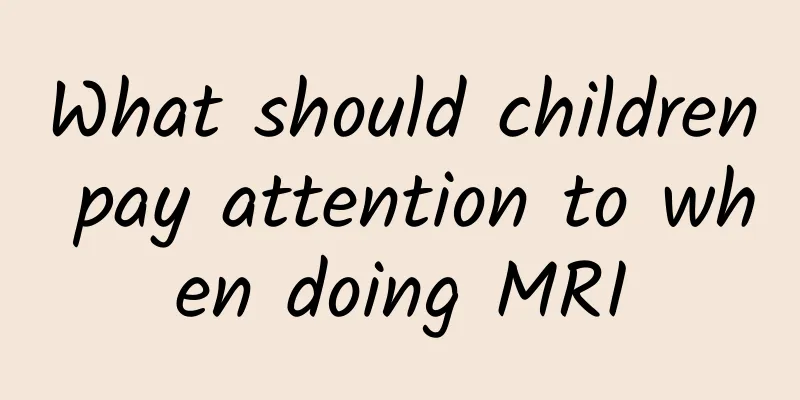Why do patients with hypothyroidism develop acute kidney injury?

|
Acute kidney injury (AKI) is a common clinical syndrome. Hypothyroidism is a systemic hypometabolic syndrome caused by low thyroid hormone levels or thyroid hormone resistance due to various reasons. The kidneys and thyroid glands interact and influence each other. Thyroid hormones can directly participate in the growth and development of the kidneys, the regulation of glomerular filtration rate, the renal transport system, and sodium and water homeostasis [1]. The kidneys are also involved in the physiological process of thyroid hormone production and clearance. Therefore, patients with kidney disease often have thyroid dysfunction, such as hypothyroidism and subclinical hypothyroidism. Hypothyroidism may have an important impact on the prognosis of patients with kidney disease [2]. The specific mechanism of action between hypothyroidism and AKI is explained below. 1. Hypothyroidism and hyperlipidemia Patients with hypothyroidism have lipid metabolism disorders, which are mainly manifested by elevated total cholesterol and low-density lipoprotein cholesterol, resulting in hyperlipidemia, which is one of the independent risk factors for renal injury. Some proinflammatory cytokines and growth factors in the body are activated by hypercholesterolemia, and these cytokines participate in renal injury through complex mechanisms. In addition, hypothyroidism patients have enhanced lipid peroxidation, and the phospholipids in the capillary basement membrane in the glomerulus undergo lipid peroxidation under the attack of oxygen free radicals, which increases capillary permeability and leads to thickening of the tubular basement membrane, which can also cause renal injury [3]. 2. Hypothyroidism and reduced renal perfusion Thyroid hormone is an important hormone that affects the glomerular filtration rate. Thyroid hormone deficiency can lead to myxedema, sodium and water retention in the interstitial space, and increased peripheral arterial resistance and mean arterial pressure, increased capillary permeability, which can lead to a decrease in blood volume and thus a decrease in glomerular filtration rate. Patients with hypothyroidism also have elevated blood lipid levels and atherosclerosis, which increase systemic circulation resistance. In addition, the renal artery is narrower. The above factors can lead to reduced renal perfusion, thereby aggravating renal ischemic damage. 3. Hypothyroidism and related cytokines In patients with hypothyroidism, the expression of TGF-β in the kidney increases under the condition of local ischemia and hypoxia caused by atherosclerosis, which can lead to increased synthesis and reduced degradation of mesangial matrix, thus promoting renal fibrosis. In addition, abnormal lipid metabolism in patients with hypothyroidism leads to excessive secretion of OPN and MCP-1 in the kidney, which can also participate in kidney damage. 4. Hypothyroidism and autoimmune factors Immune complexes mediated by thyroid-related antigens can deposit in the kidneys and initiate complex immune mechanisms, causing renal damage. The mechanism of autoimmune-mediated renal damage may be related to the deposition of thyroid antigens in the glomeruli to form in situ immune complexes. However, the renal tissue pathological biopsy of most patients with hypothyroidism-related nephropathy failed to reveal the presence of thyroid autoantigens, antibodies, and circulating immune complexes. Therefore, the exact pathogenesis of renal damage caused by autoimmune factors needs further study. summary In summary, kidney disease combined with hypothyroidism is related to multiple factors. Dyslipidemia, autoimmune factors, and decreased renal blood flow perfusion may be important risk factors for hypothyroidism. Various injury mechanisms can affect each other and worsen with the severity of hypothyroidism and the duration of the disease. Hypothyroidism can increase the risk of AKI and the mortality rate of critically ill patients with AKI, affecting the clinical prognosis of critically ill AKI patients [4]. Clinicians should pay enough attention to it. References: [1]de Souza Alexandre Barbosa Câmara et al. Influence of low free thyroxine on progression of chronic kidney disease.[J]. BMC nephrology, 2020, 21(1): 36. [2] Wei Xiaoqing, Wang Hong. Study on the correlation between primary hypothyroidism and renal injury[J]. Modern Medicine and Health, 2016, 32(06):883-885. [3] Zhang Yunfen, Fang Hui, Ma Qingsong, Guo Yongli. Study on renal morphology and stereology of hypothyroid rats[J]. Journal of Hebei Medical University, 2013, 34(04): 381-383. [4] Chen Dezhu, Zhu Mangui, Liu Lingling, Rong Yanhui. Effect of hypothyroidism on the occurrence and clinical prognosis of acute kidney injury in critically ill patients[J]. Journal of Clinical Nephrology, 2019, 19(12): 907-911. |
<<: Does "age odor" exist? Do elderly people have a special smell?
Recommend
Can I apply seaweed mask every day? The correct answer is this
I believe many people like seaweed masks. This ki...
Bartholin's gland cyst is punctured with a needle
Bartholin's gland cyst mainly occurs in women...
What else can be added to braised pork without preserved vegetables? What can be used instead of preserved vegetables?
We all know that there are many ways to cook brai...
The best time to check follicles
In order to increase their chances of pregnancy, ...
When giving general anesthesia to pregnant women, what are the anesthesiologists worried about?
At present, general anesthesia technology is very...
What's wrong with white foreign matter in vulva itching?
As a woman, it is very common to have gynecologic...
Pregnancy left hand pulse is obvious
A strong pulse on the right hand is not a sign of...
Can peaches be put in the refrigerator? How to preserve them better? How to store peaches for a longer time?
Peaches can be eaten raw, but they can also be us...
How to abort a baby at 15 days of pregnancy
Pregnancy is a great joy. But without advance pre...
Why do my arms ache during confinement?
It is strictly forbidden to catch a cold during t...
The man with gout continued to drink despite his family's repeated dissuasion, and regretted it when he was lying on the operating table
A few days ago, an orthopedic surgery shocked eve...
Why does breast hyperplasia not hurt? The reason is actually this
There are many reasons for breast hyperplasia. Th...
Changes in cervical mucus during ovulation
Women will experience changes in cervical mucus d...
Does drinking alcohol cause gout? Answers to the relationship between drinking alcohol and gout, gout treatment, please bookmark
Nowadays, with the improvement of people's li...
What are the reasons why women don’t want to have sex?
For lovers or married couples, being able to have...









